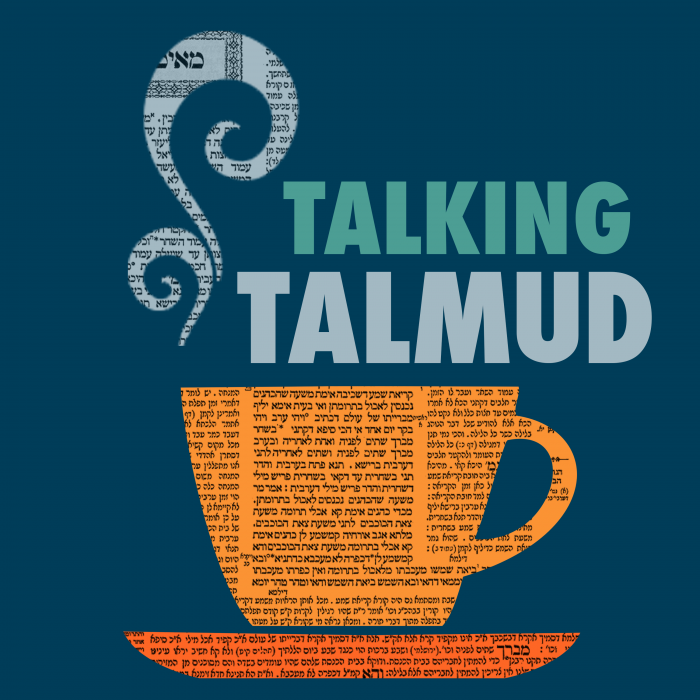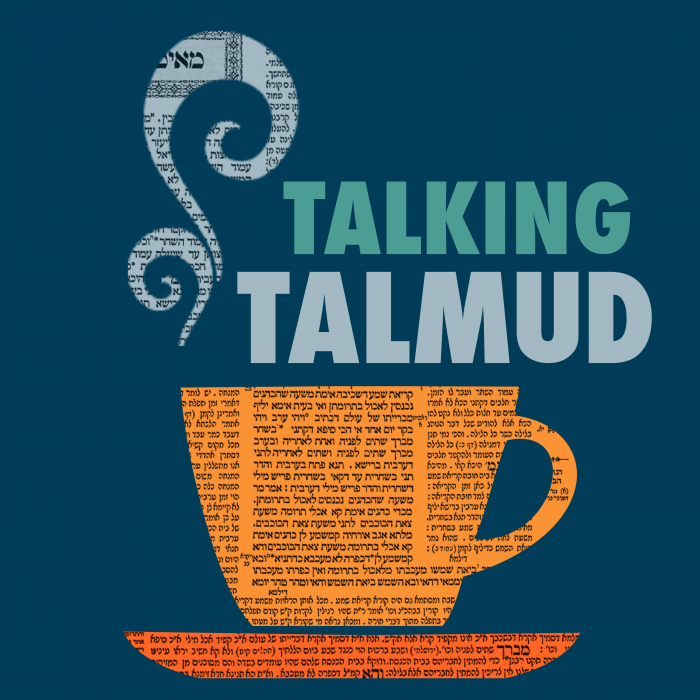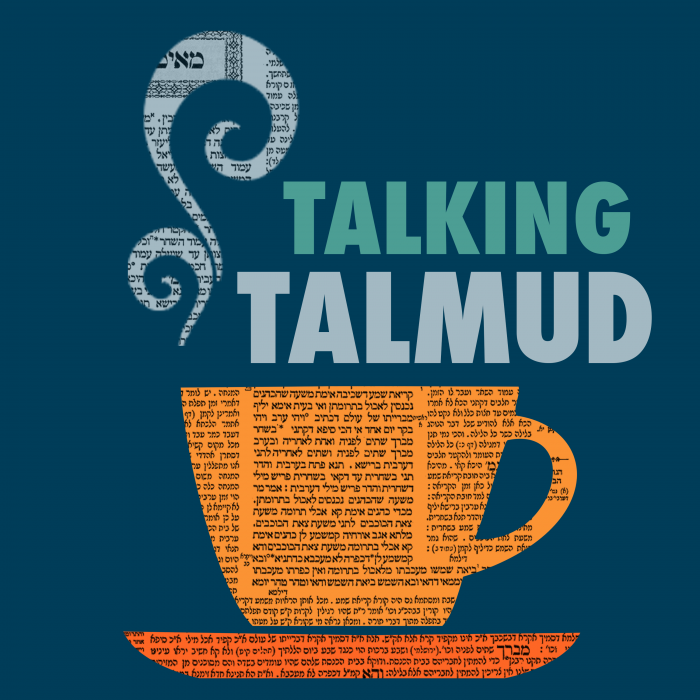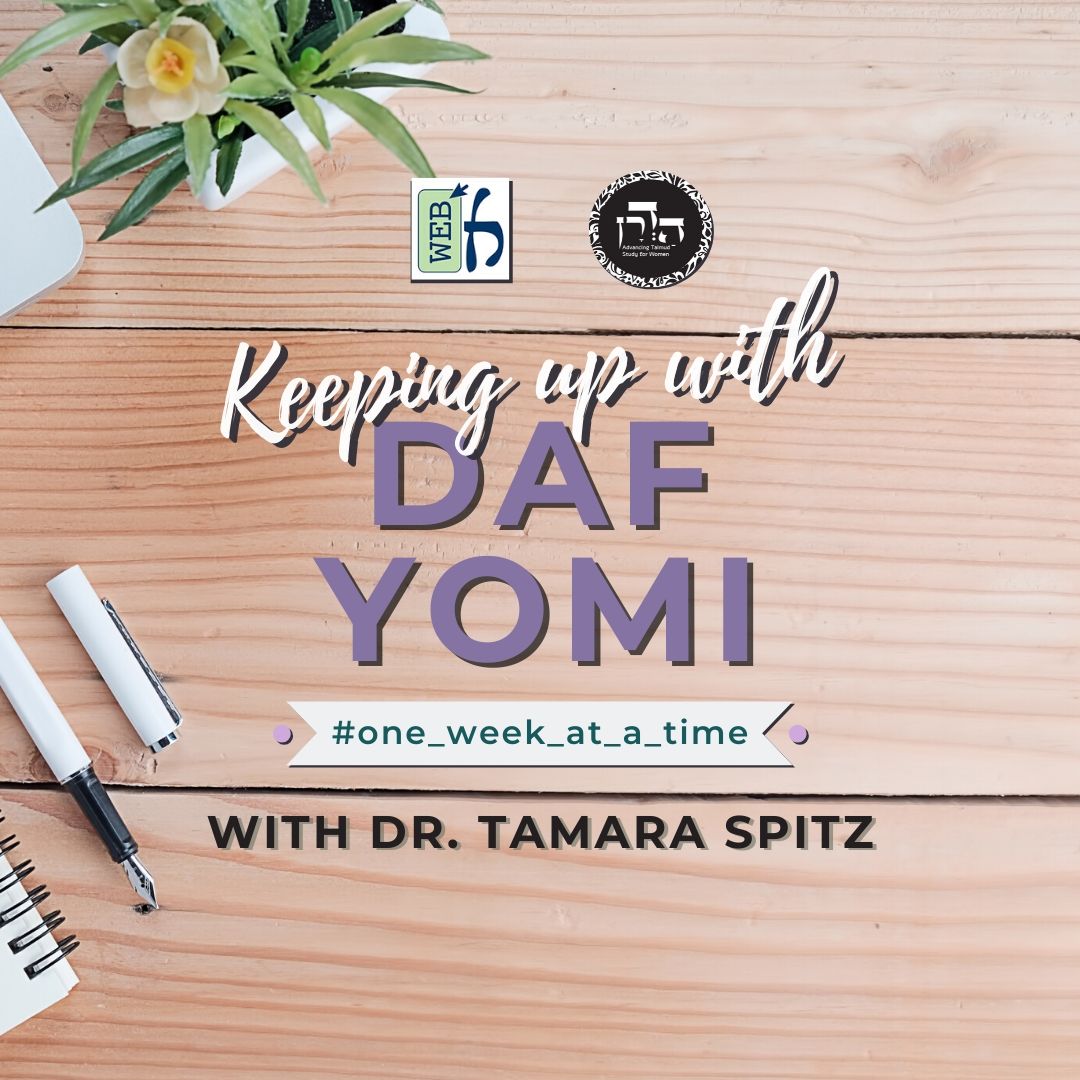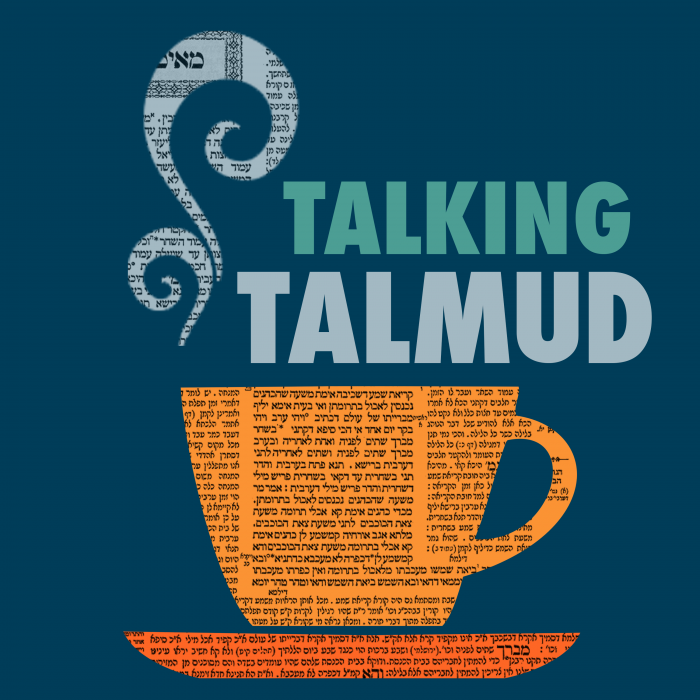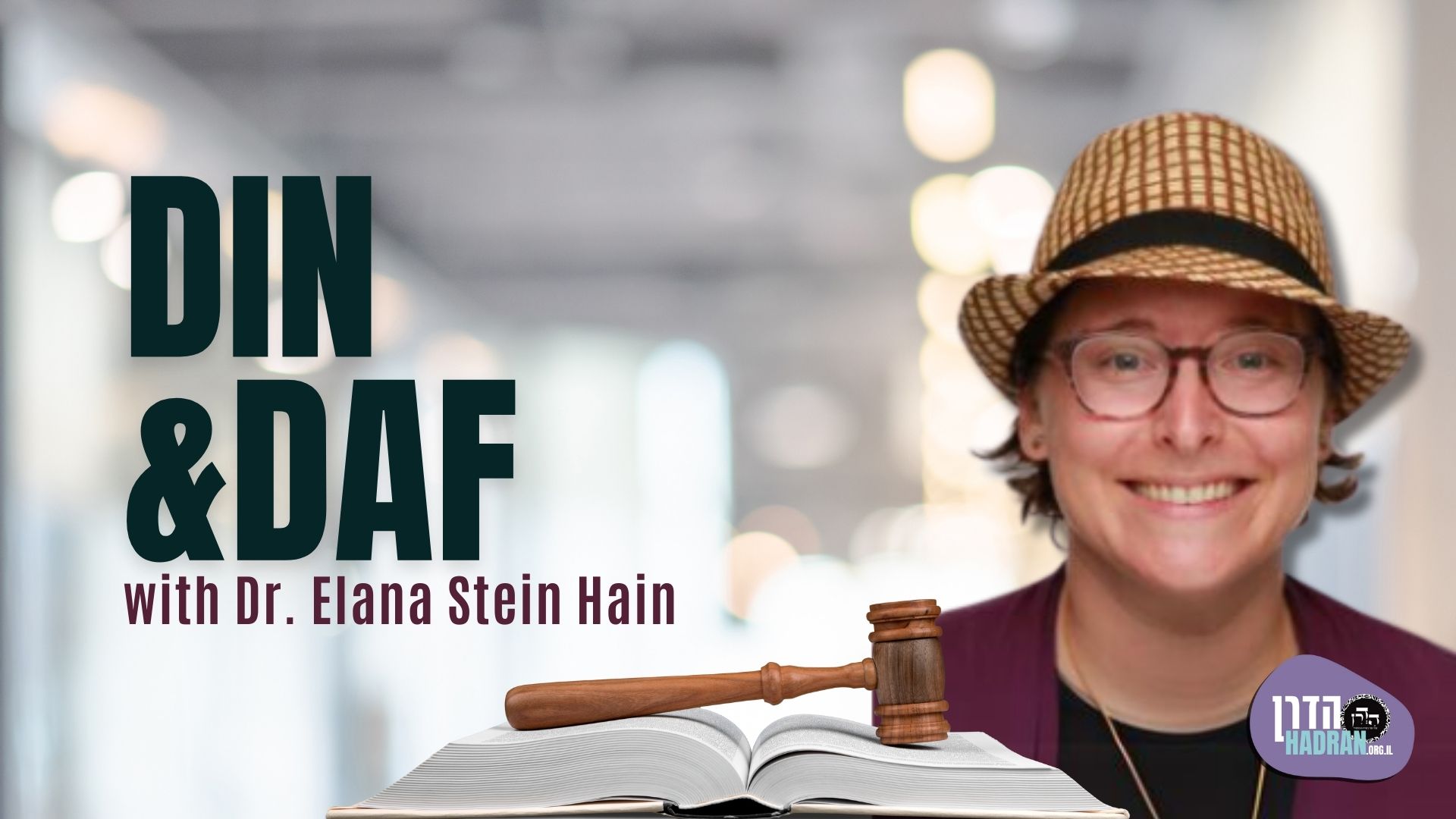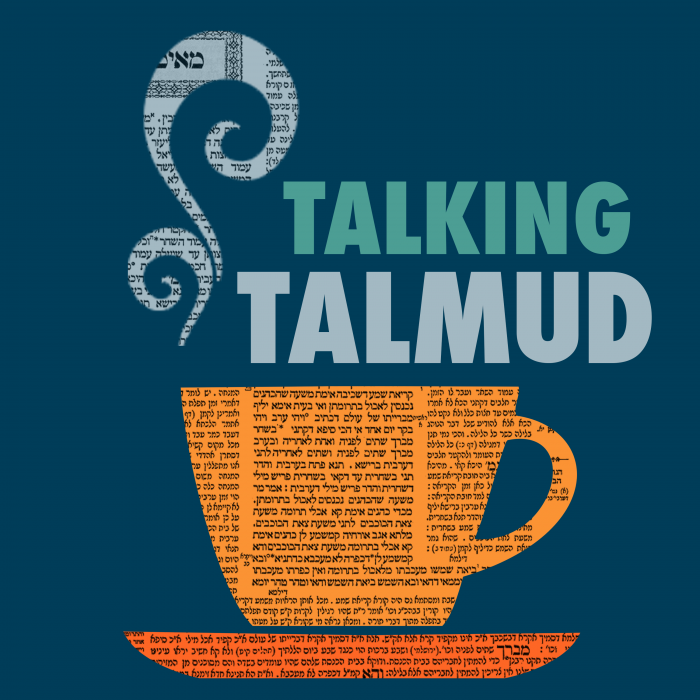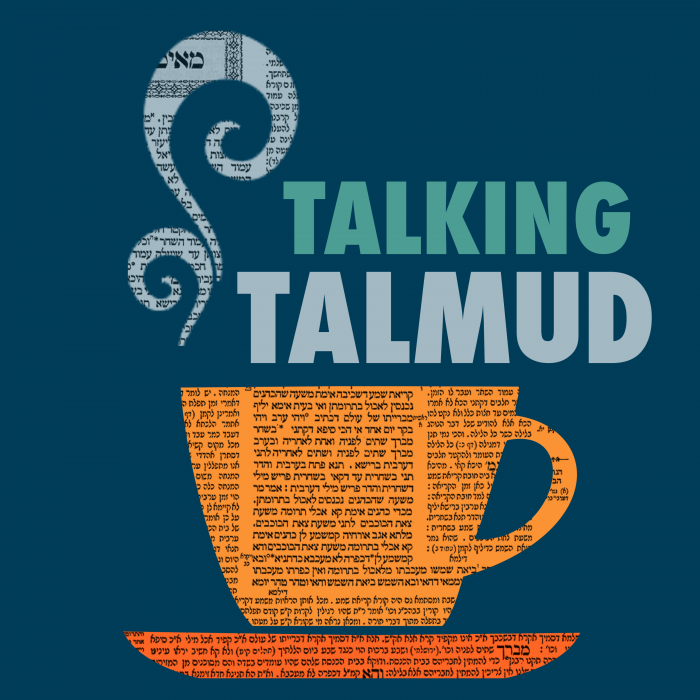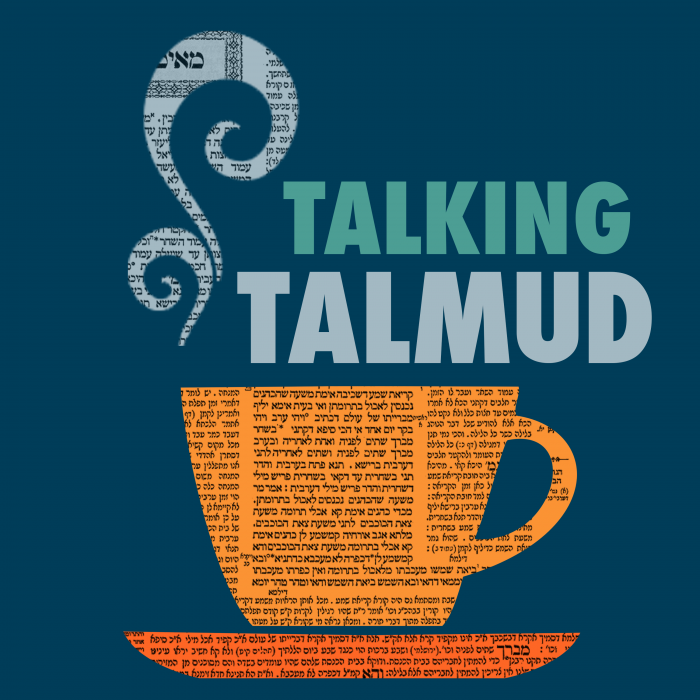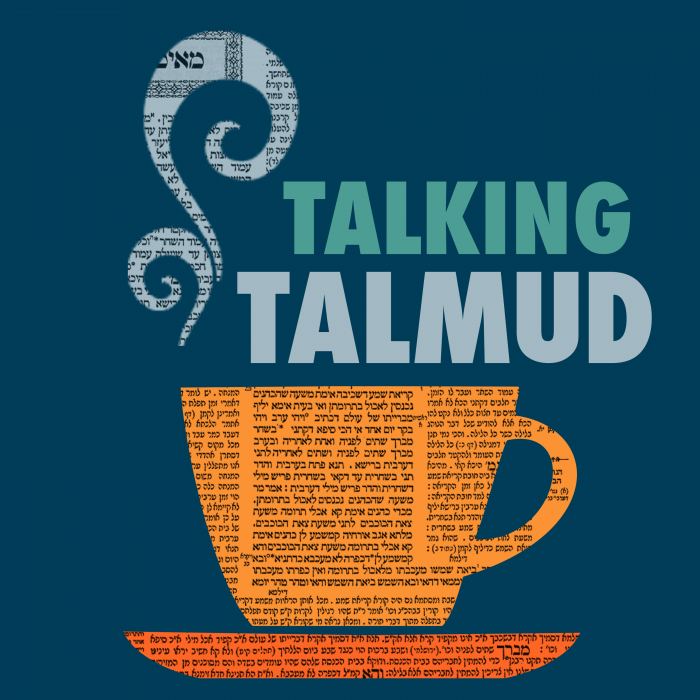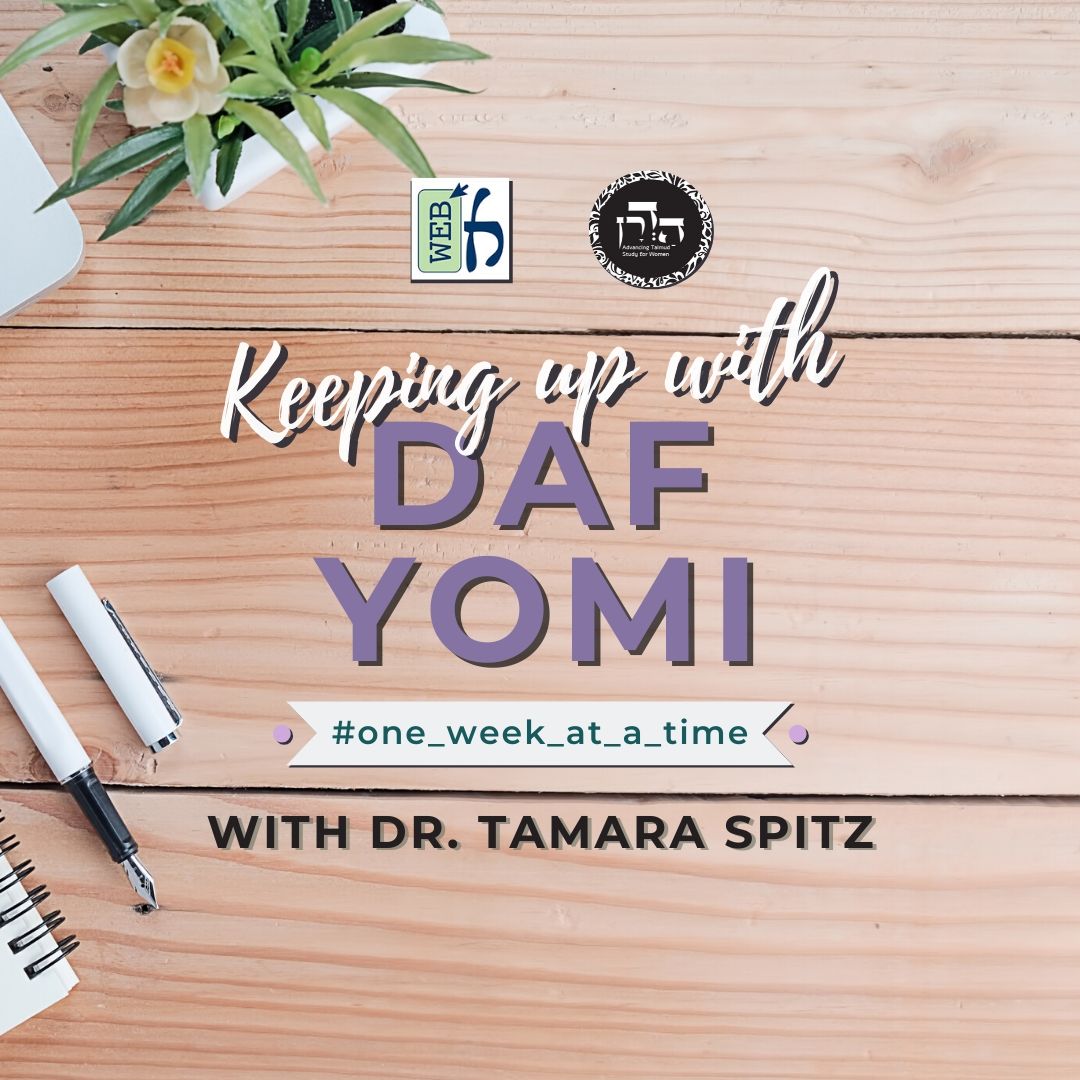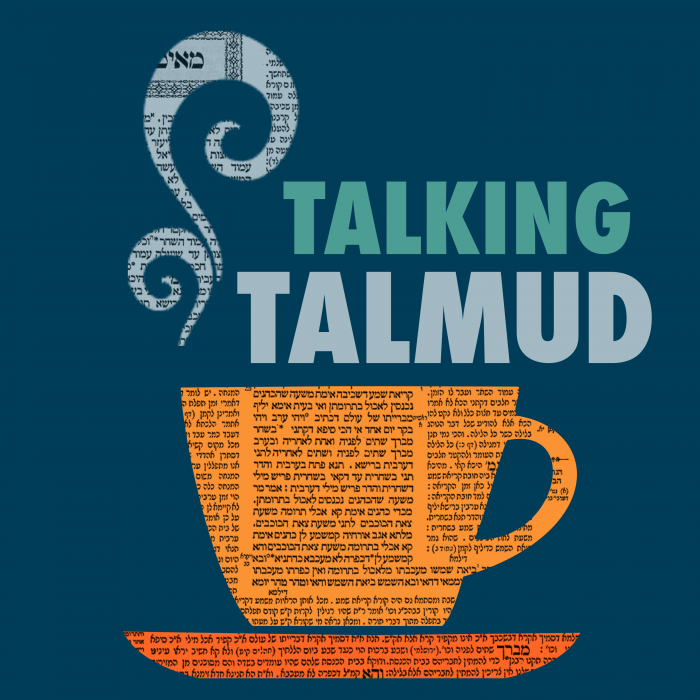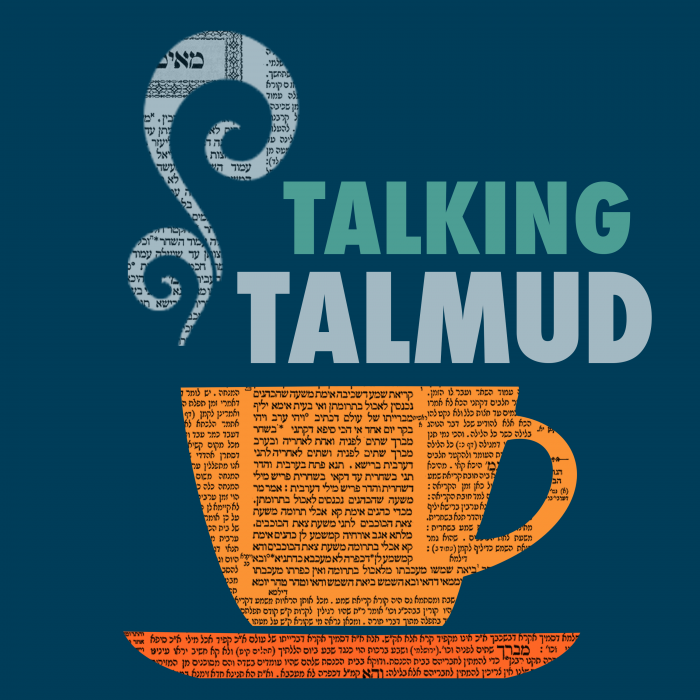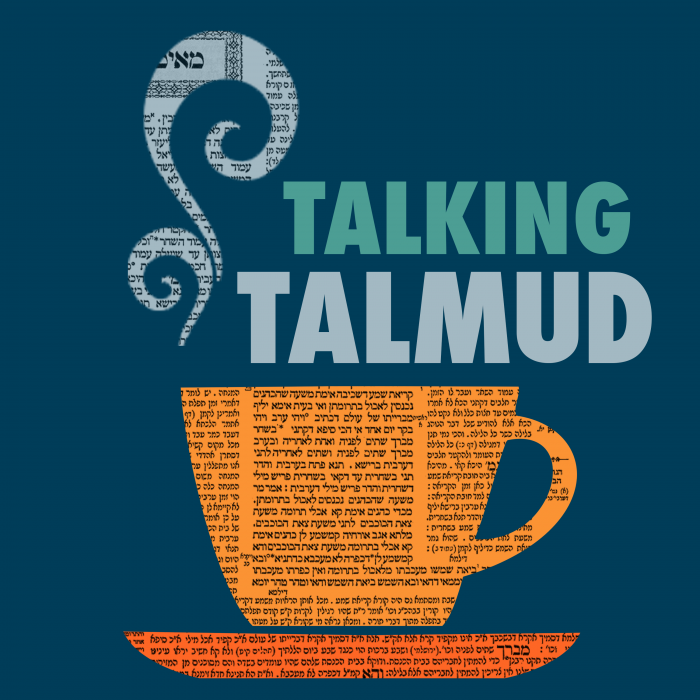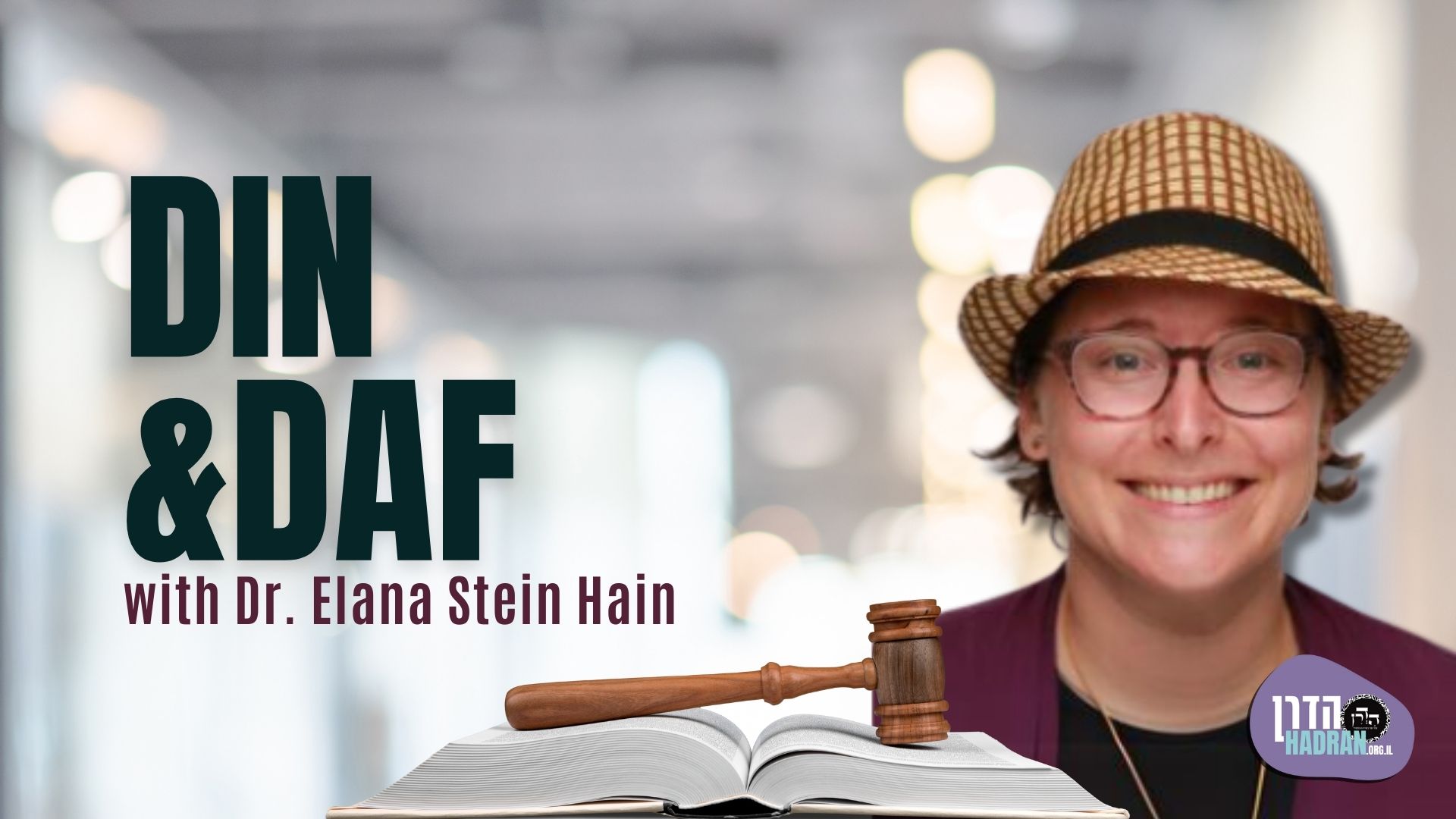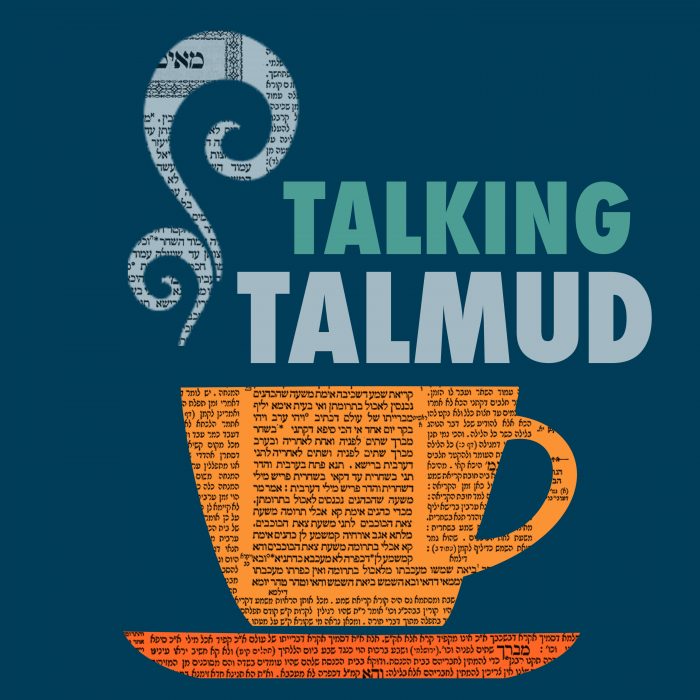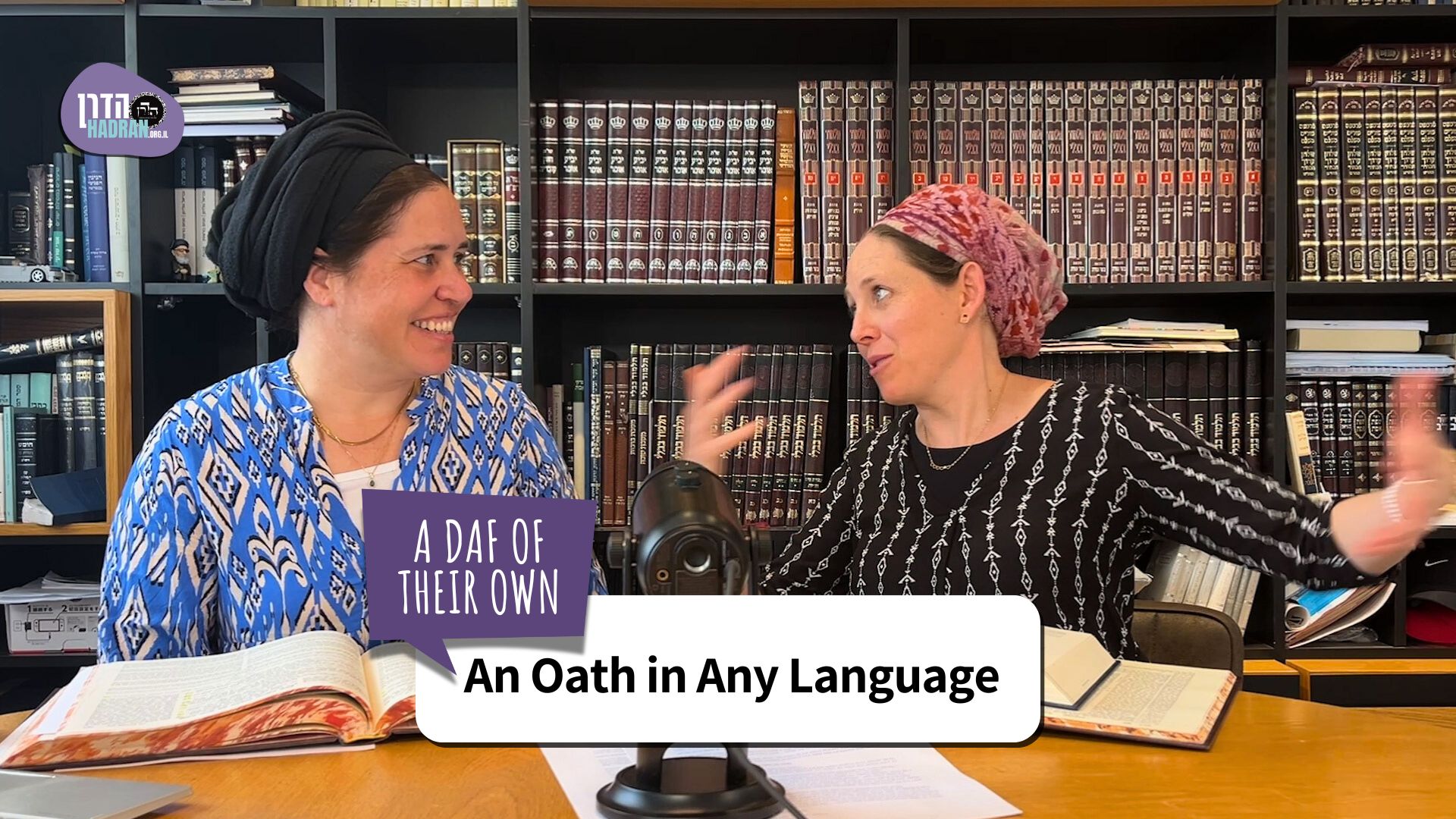Shevuot 33
הָא קָיְימָא שְׁנִיָּה!
But the second set of witnesses still stands available to testify, so what loss did the first set cause the plaintiff when they denied knowledge of the matter?
אָמַר רָבִינָא: הָכָא בְּמַאי עָסְקִינַן – כְּגוֹן שֶׁהָיְתָה שְׁנִיָּה בִּשְׁעַת כְּפִירַת רִאשׁוֹנָה קְרוֹבִין בִּנְשׁוֹתֵיהֶן, וּנְשׁוֹתֵיהֶן גּוֹסְסוֹת; מַהוּ דְּתֵימָא: רוֹב גּוֹסְסִים לְמִיתָה, קָא מַשְׁמַע לַן: הַשְׁתָּא מִיהָא לָא שְׁכֵיב.
Ravina said: What are we dealing with here? We are dealing with a case where the two witnesses in the second set were relatives through their wives at the time of the denial of the first set of witnesses. The two witnesses in the second set were married to two sisters, and brothers-in-law are unfit to serve as witnesses together. Therefore, the claim of the plaintiff is entirely dependent upon the testimony of the first set of witnesses. And the sisters who were wives of the witnesses in the second set were moribund. Lest you say that since, presumably, the majority of individuals who are moribund will actually die very soon, and therefore these two witnesses are fit to testify together, therefore, the tanna teaches us that since now in any event, the wives had not yet died, their husbands remain unfit to testify together.
מַתְנִי׳ ״מַשְׁבִּיעַ אֲנִי עֲלֵיכֶם, אִם לֹא תָבוֹאוּ וּתְעִידוּנִי שֶׁיֵּשׁ לִי בְּיַד פְּלוֹנִי פִּקָּדוֹן וּתְשׂוּמֶת יָד וְגָזֵל וַאֲבֵידָה״; ״שְׁבוּעָה שֶׁאֵין אָנוּ יוֹדְעִין לָךְ עֵדוּת״ – אֵין חַיָּיבִין אֶלָּא אַחַת.
MISHNA: In a case where the plaintiff said to the witnesses: I administer an oath to you concerning your refusal to testify if you do not come and testify on my behalf that I have in the possession of so-and-so a deposit, and an outstanding loan, and a stolen item, and a lost item, and they lied in reply: On our oath we do not know any testimony on your behalf, they are liable for taking only one false oath of testimony.
״שְׁבוּעָה שֶׁאֵין אָנוּ יוֹדְעִין שֶׁיֵּשׁ לְךָ בְּיַד פְּלוֹנִי פִּקָּדוֹן וּתְשׂוּמֶת יָד וְגָזֵל וַאֲבֵידָה״ – חַיָּיבִין עַל כׇּל אַחַת וְאַחַת.
But if they lied in reply: On our oath we do not know that you have in the possession of so-and-so a deposit, and an outstanding loan, and a stolen item, and a lost item, they are liable for each and every one of the components of the claim. It is as though they took a separate oath with regard to each of the details of the claim.
״מַשְׁבִּיעַ אֲנִי עֲלֵיכֶם, אִם לֹא תָבוֹאוּ וְתָעִידוּ שֶׁיֵּשׁ לִי בְּיַד פְּלוֹנִי פִּקָּדוֹן חִטִּין וּשְׂעוֹרִין וְכוּסְּמִין״; ״שְׁבוּעָה שֶׁאֵין אָנוּ יוֹדְעִין לְךָ עֵדוּת״ – אֵין חַיָּיבִין אֶלָּא אַחַת.
In a case where the plaintiff said to the witnesses: I administer an oath to you concerning your refusal to testify if you do not come and testify that I have in the possession of so-and-so a deposit of wheat, and barley, and spelt, and they lied in reply: On our oath we do not know any testimony on your behalf, they are liable for taking only one false oath of testimony.
״שְׁבוּעָה שֶׁאֵין אָנוּ יוֹדְעִין לְךָ עֵדוּת שֶׁיֵּשׁ לְךָ בְּיַד פְּלוֹנִי חִטִּין וּשְׂעוֹרִין וְכוּסְּמִין״ – חַיָּיבִין עַל כׇּל אַחַת וְאַחַת.
But if they lied in reply: On our oath we do not know any testimony on your behalf that you have in the possession of so-and-so wheat, and barley, and spelt, they are liable for each and every one of the components of the claim.
״מַשְׁבִּיעַ אֲנִי עֲלֵיכֶם, אִם לֹא תָבוֹאוּ וּתְעִידוּנִי שֶׁיֵּשׁ לִי בְּיַד פְּלוֹנִי נֶזֶק, וַחֲצִי נֶזֶק, תַּשְׁלוּמֵי כֶּפֶל, וְתַשְׁלוּמֵי אַרְבָּעָה וַחֲמִשָּׁה, וְשֶׁאָנַס אִישׁ פְּלוֹנִי אֶת בִּתִּי, וּפִתָּה אֶת בִּתִּי, וְשֶׁהִכַּנִי בְּנִי, וְשֶׁחָבַל בִּי חֲבֵירִי, וְשֶׁהִדְלִיק אֶת גְּדִישִׁי בְּיוֹם הַכִּפּוּרִים״ – הֲרֵי אֵלּוּ חַיָּיבִין.
In a case where the plaintiff said to the witnesses: I administer an oath to you concerning your refusal to testify if you do not come and testify on my behalf that I have in the possession of so-and-so an outstanding payment for damage; or an outstanding payment for half the damage, which the owner pays for damage caused by his innocuous ox goring another animal; or with regard to an outstanding payment of double the principal that a thief must pay the owner of the stolen item; or with regard to an outstanding payment of four or five times the principal that a thief pays when he stole a sheep or an ox, respectively, and then slaughtered or sold it; or in a case where the plaintiff said: I administer an oath to you concerning your refusal to testify if you do not come and testify that so-and-so raped my daughter; or, he seduced my daughter; or, that my son struck me; or, that another injured me; or, that he set my stack of grain on fire on Yom Kippur; if in any of these cases the witnesses took an oath falsely denying any knowledge of the matter on behalf of the plaintiff, these witnesses are liable for taking a false oath of testimony.
גְּמָ׳ אִיבַּעְיָא לְהוּ: מַשְׁבִּיעַ עֵדֵי קְנָס, מַהוּ?
GEMARA: A dilemma was raised before the Sages: In a case where one administers an oath to witnesses concerning a fine if they do not come and testify that one performed an action that renders him liable to pay a sum fixed by the Torah as penalty for that action, what is the halakha? Is it like any other case of an oath administered to witnesses in monetary matters or not?
אַלִּיבָּא דְּרַבִּי אֶלְעָזָר בְּרַבִּי שִׁמְעוֹן – לָא תִּיבְּעֵי לָךְ, דְּאָמַר: יָבוֹאוּ עֵדִים וְיָעִידוּ.
The Gemara refines the dilemma: According to the opinion of Rabbi Elazar, son of Rabbi Shimon, do not raise the dilemma, as he says in a case where one performed an action in the presence of witnesses for which he is liable to pay a fine, and before the witnesses testified, he admitted his liability, even though the principle is: One who admits that he is liable to pay a fine is exempt from paying the fine, the witnesses shall come and testify and render the one who performed the action liable to pay the fine. In his opinion, payment of the fine is dependent upon their testimony, and therefore if they lie, they are liable for taking a false oath of testimony.
כִּי תִּיבְּעֵי לָךְ – אַלִּיבָּא דְּרַבָּנַן, דְּאָמְרִי: מוֹדֶה בִּקְנָס וְאַחַר כָּךְ בָּאוּ עֵדִים – פָּטוּר.
When should you raise the dilemma? Raise it according to the opinion of the Rabbis who disagree with Rabbi Elazar, son of Rabbi Shimon, as they say: One who admits he is liable to pay a fine is exempt, even if afterward witnesses came and testified to his liability. The case in the mishna is one where the plaintiff demanded that the witnesses testify on his behalf before the defendant admitted knowledge of the fine.
וְרַבָּנַן דְּהָתָם, כְּמַאן סְבִירָא לְהוּ? אִילֵּימָא כְּרַבִּי אֶלְעָזָר בְּרַבִּי שִׁמְעוֹן דְּהָכָא, הָא קָאָמַר: דָּבָר הַגּוֹרֵם לְמָמוֹן כְּמָמוֹן דָּמֵי!
The Gemara seeks to clarify: And the Rabbis, who expressed their opinion there that one who admits he is liable to pay a fine is exempt, even if afterward witnesses come, in accordance with whose opinion do they hold? If we say that they hold in accordance with the opinion of Rabbi Elazar, son of Rabbi Shimon, cited here (32a), doesn’t he say: A matter that causes financial loss is considered to have monetary value with regard to the oath of testimony? Witnesses who testify concerning a fine also cause financial loss, as, if the individual does not admit his liability, he will be liable to pay the fine based on their testimony.
אֶלָּא כְּרַבָּנַן דְּהָכָא, דְּאָמְרִי: דָּבָר הַגּוֹרֵם לְמָמוֹן לָאו כְּמָמוֹן דָּמֵי. מַאי? כֵּיוָן דְּאִילּוּ מוֹדֶה מִיפְּטַר – לָאו מָמוֹנָא קָא כָפַר לֵיהּ; אוֹ דִלְמָא, הַשְׁתָּא מִיהָא לָא אוֹדִי?
Rather, apparently, the Rabbis there hold in accordance with the opinion of the Rabbis here, who say: A matter that causes financial loss is not considered to have monetary value. It is according to that opinion that the dilemma is raised: What is the halakha in the case of witnesses to a fine? Does one say: Since if the one liable to pay the fine admits his liability, he is exempt from paying the fine, the witness taking the oath denying knowledge of the matter is not denying a monetary claim, and therefore, he is not liable for taking a false oath of testimony? Or perhaps since now, in any event, he has not yet admitted liability, payment of the fine is dependent upon the testimony of these witnesses and it is considered a monetary matter for which they are liable for taking a false oath of testimony.
תָּא שְׁמַע: ״מַשְׁבִּיעַ אֲנִי עֲלֵיכֶם, אִם לֹא תָבוֹאוּ וּתְעִידוּנִי שֶׁיֵּשׁ לִי בְּיַד פְּלוֹנִי נֶזֶק וַחֲצִי נֶזֶק״. וְהָא חֲצִי נֶזֶק קְנָסָא הוּא! כְּמַאן דְּאָמַר פַּלְגָא נִזְקָא מָמוֹנָא.
The Gemara suggests: Come and hear proof from the mishna to resolve the dilemma: I administer an oath to you concerning your refusal to testify if you do not come and testify on my behalf that I have in the possession of so-and-so an unpaid payment for damage; and likewise, an unpaid payment for half the damage. In those cases the witnesses can be held liable for the oath of testimony. But isn’t payment for half the damage payment of a fine? The Gemara rejects this proof: This mishna is in accordance with the opinion of the one who says that payment of half the damage is monetary restitution and not a fine.
הָנִיחָא לְמַאן דְּאָמַר פַּלְגָא נִזְקָא מָמוֹנָא; אֶלָּא לְמַאן דְּאָמַר קְנָסָא, מַאי אִיכָּא לְמֵימַר? בַּחֲצִי נֶזֶק צְרוֹרוֹת, דְּהִלְכְתָא גְּמִירִי לַהּ דְּמָמוֹנָא הוּא.
The Gemara asks: This works out well according to the one who says that payment of half the damage is monetary restitution. But according to the one who says that payment of half the damage is payment of a fine, what can be said? The Gemara answers: In his opinion, the mishna is referring to a case where the plaintiff demands that the witnesses testify with regard to liability to pay for half the damage caused by pebbles inadvertently propelled by the foot of a walking animal, as they learned this halakha through tradition transmitted to Moses from Sinai that payment of half the damage in that case is monetary restitution, not a fine. Therefore, no proof may be cited from the mishna with regard to liability for taking a false oath of testimony concerning a fine.
תָּא שְׁמַע: ״תַּשְׁלוּמֵי כֶפֶל״! מִשּׁוּם קַרְנָא.
The Gemara suggests: Come and hear proof from the mishna to resolve the dilemma: I administer an oath to you concerning your refusal to testify if you do not come and testify that I have in the possession of so-and-so an unpaid payment of double the principal, for which the witnesses are also liable for taking a false oath of testimony. But isn’t that payment of a fine? The Gemara responds: The liability for taking a false oath of testimony in that case is not due to their denial of knowledge of the matter with regard to the fine; rather, the liability is due to their denial of knowledge of the matter with regard to the principal, which is a full-fledged monetary payment.
״וְתַשְׁלוּמֵי אַרְבָּעָה וַחֲמִשָּׁה״! מִשּׁוּם קַרְנָא.
The Gemara cites another proof from the mishna: I administer an oath to you concerning your refusal to testify if you do not come and testify that I have in the possession of so-and-so payment of four or five times the principal, which is a fine. The Gemara answers: There too, the liability is due to their denial of knowledge of the matter with regard to the principal, not due to the fine.
״שֶׁאָנַס אִישׁ פְּלוֹנִי וּפִתָּה אֶת בִּתִּי״! מִשּׁוּם בּוֹשֶׁת וּפְגָם.
The Gemara cites another proof from the continuation of the mishna: I administer an oath to you concerning your refusal to testify if you do not come and testify that so-and-so raped my daughter; or, he seduced my daughter. Isn’t the payment for rape and seduction a fine of 50 sela? The Gemara rejects this: There, the liability of the witnesses is due to their denial of knowledge of the matter with regard to payment for humiliation and compensation for degradation of the value of the young woman resulting from the rape or the seduction. Those are categorized as monetary restitution, not as fines.
מַאי קָא מַשְׁמַע לַן? כּוּלַּהּ מָמוֹנָא הוּא! רֵישָׁא חֲדָא קָא מַשְׁמַע לַן, סֵיפָא חֲדָא קָא מַשְׁמַע לַן; רֵישָׁא חֲדָא קָא מַשְׁמַע לַן – דַּחֲצִי נֶזֶק צְרוֹרוֹת מָמוֹנָא הוּא.
The Gemara asks: According to this understanding, what is the tanna teaching us with the multiplicity of cases in the mishna? All the cases in the mishna are of monetary restitution. The Gemara answers: In the first clause, the tanna teaches us one novel element, and in the latter clause, the tanna teaches us one novel element. In the first clause, the tanna teaches us one novel element, that liability to pay for half the damage caused by pebbles is monetary restitution, not a fine.
סֵיפָא חֲדָא קָא מַשְׁמַע לַן – ״וְשֶׁהִדְלִיק אֶת גְּדִישִׁי בְּיוֹם הַכִּפּוּרִים״. לְאַפּוֹקֵי מַאי? לְאַפּוֹקֵי מִדְּרַבִּי נְחוּנְיָא בֶּן הַקָּנָה – דְּתַנְיָא: רַבִּי נְחוּנְיָא בֶּן הַקָּנָה הָיָה עוֹשֶׂה יוֹם הַכִּפּוּרִים כַּשַּׁבָּת לְתַשְׁלוּמִין, מָה שַׁבָּת כּוּ׳.
In the latter clause, the tanna teaches us one novel element: I administer an oath to you concerning your refusal to testify if you do not come and testify that he set my stack of grain on fire on Yom Kippur. What does this halakha serve to exclude? It serves to exclude the opinion of Rabbi Neḥunya ben HaKana, as it is taught in a baraita: Rabbi Neḥunya ben HaKana would deem Yom Kippur like Shabbat with regard to payment of damages. Just as in the case of one who intentionally desecrates Shabbat, he is liable to receive the death penalty and is therefore exempt from liability for payment for damage that is caused while desecrating Shabbat, so too, in the case of one who intentionally desecrates Yom Kippur, he is liable to receive the death penalty and is therefore exempt from liability for payment for damage that is caused while desecrating Yom Kippur. The tanna of the mishna disagrees.
תָּא שְׁמַע: ״מַשְׁבִּיעַ אֲנִי עֲלֵיכֶם, אִם לֹא תָבוֹאוּ וּתְעִידוּנִי
The Gemara suggests: Come and hear proof from a baraita to resolve the dilemma: I administer an oath to you concerning your refusal to testify if you do not come and testify on my behalf
שֶׁהוֹצִיא אִישׁ פְּלוֹנִי שֵׁם רַע עַל בִּתִּי״ – חַיָּיבִין. הוֹדָה מִפִּי עַצְמוֹ – פָּטוּר.
that so-and-so slandered my daughter. In such a case, the witnesses are liable for taking a false oath of testimony. If the accused admitted on his own that he slandered the young woman, he is exempt from paying the fine. The only payment in the case of a husband who falsely accuses his bride of adultery is payment of a fine, and yet the baraita says that the witnesses are liable for taking a false oath of testimony.
הָא מַנִּי – רַבִּי אֶלְעָזָר בְּרַבִּי שִׁמְעוֹן הִיא, דְּאָמַר: יָבוֹאוּ עֵדִים וְיָעִידוּ.
The Gemara answers: In accordance with whose opinion is this baraita? It is in accordance with the opinion of Rabbi Elazar, son of Rabbi Shimon, who says: Even if the one who is liable to pay the fine admits his liability, the witnesses shall come and testify and render the one who performed the action liable to pay the fine.
אֵימָא סֵיפָא: הוֹדָה מֵעַצְמוֹ – פָּטוּר, אֲתָאן לְרַבָּנַן!
The Gemara asks: Say the latter clause of the baraita: If that man admitted on his own that he slandered the young woman, he is exempt from paying the fine. Ostensibly, in this we arrive at the opinion of the Rabbis, who hold that if the one who is liable admits his liability before the witnesses testify, he is exempt from paying the fine, contrary to the opinion of Rabbi Elazar, son of Rabbi Shimon.
כּוּלָּהּ רַבִּי אֶלְעָזָר בְּרַבִּי שִׁמְעוֹן הִיא, וְהָכִי קָאָמַר: לָא מַשְׁכַּחַתְּ לַהּ הוֹדָה מִפִּי עַצְמוֹ דְּפָטוּר, אֶלָּא הֵיכָא דְּלֵיכָּא עֵדִים כְּלָל וְהוֹדָה מֵעַצְמוֹ.
The Gemara explains: The baraita in its entirety is the opinion of Rabbi Elazar, son of Rabbi Shimon, and this is what the tanna is saying in the latter clause: You find a case of one who admitted liability on his own that he is exempt from paying the fine, only in a case where there are no witnesses at all and he admitted liability on his own. In a case where there are witnesses, he is liable to pay the fine on the basis of their testimony even if he admitted liability.
מַתְנִי׳ ״מַשְׁבִּיעַ אֲנִי עֲלֵיכֶם, אִם לֹא תָבוֹאוּ וְתָעִידוּ שֶׁאֲנִי כֹּהֵן, שֶׁאֲנִי לֵוִי, שֶׁאֵינִי בֶּן גְּרוּשָׁה, שֶׁאֵינִי בֶּן חֲלוּצָה, שֶׁאִישׁ פְּלוֹנִי כֹּהֵן, שֶׁאִישׁ פְּלוֹנִי לֵוִי, שֶׁאֵינוֹ בֶּן גְּרוּשָׁה, שֶׁאֵינוֹ בֶּן חֲלוּצָה,
MISHNA: In a case where the plaintiff said to two witnesses: I administer an oath to you concerning your refusal to testify if you do not come and testify that I am a priest, or that I am a Levite, or that I am not the son of a priest and a divorced woman, or that I am not the son of a priest and a ḥalutza, or that so-and-so is a priest, or that so-and-so is a Levite, or that he is not the son of a priest and a divorced woman, or that he is not the son of a priest and a ḥalutza; in all these cases the witnesses are exempt from liability for taking a false oath of testimony, because these do not involve monetary claims.
שֶׁאָנַס אִישׁ פְּלוֹנִי אֶת בִּתּוֹ, וּפִתָּה אֶת בִּתּוֹ, וְשֶׁחָבַל בִּי בְּנִי, וְשֶׁחָבַל בִּי חֲבֵירִי, שֶׁהִדְלִיק גְּדִישִׁי בְּשַׁבָּת״ – הֲרֵי אֵלּוּ פְּטוּרִין.
Likewise, if the plaintiff said to them: I administer an oath to you concerning your refusal to testify if you do not come and testify that so-and-so raped his daughter, or that he seduced his daughter, or that my son injured me, or that another person wounded me on Shabbat, or that he set my stack of grain on fire on Shabbat; in all these cases these witnesses are exempt, as each case is punishable with the death penalty, and therefore they are cases that do not involve monetary payment.
גְּמָ׳ טַעְמָא דְּאִישׁ פְּלוֹנִי כֹּהֵן, דְּאִישׁ פְּלוֹנִי לֵוִי; הָא ״מָנֶה לִפְלוֹנִי בְּיַד פְּלוֹנִי״ – חַיָּיבִין; הָא קָתָנֵי סֵיפָא: עַד שֶׁיִּשְׁמְעוּ מִפִּי הַתּוֹבֵעַ!
GEMARA: The Gemara infers: The reason that the witnesses are exempt is that the plaintiff demanded that they testify that so-and-so is a priest or that so-and-so is a Levite, which are claims that do not involve monetary payment; but were the plaintiff to say: I administer an oath to you concerning your refusal to testify if you do not come and testify that one hundred dinars belonging to so-and-so are in the possession of another so-and-so, they would be liable. But isn’t it taught in the latter clause of the mishna (35a): The witnesses are exempt until they hear a demand to come and testify directly from the mouth of the plaintiff, and here the individual administering the oath is not the plaintiff.
אָמַר שְׁמוּאֵל: בְּבָא בְּהַרְשָׁאָה. וְהָאָמְרִי נְהַרְדָּעֵי: לָא כָּתְבִינַן אוֹרַכְתָּא אַמִּטַּלְטְלִי! הָנֵי מִילֵּי הֵיכָא דְּכַפְרֵיהּ, אֲבָל לָא כַּפְרֵיהּ – כָּתְבִינַן.
Shmuel says: The reference here is to a case where the individual administering the oath comes with authorization to demand that the witnesses testify on his behalf. The Gemara asks: But didn’t the Sages of Neharde’a say: We do not write an authorization document concerning movable property? The Gemara answers: This statement that one does not write authorization for movable property applies only in a case where the respondent already denied the claim against him. But in a case where the respondent did not yet deny the claim against him, we write authorization even for movable property.
תָּנוּ רַבָּנַן: מִנַּיִן שֶׁאֵין הַכָּתוּב מְדַבֵּר אֶלָּא בִּתְבִיעַת מָמוֹן? רַבִּי אֱלִיעֶזֶר אוֹמֵר: נֶאֱמַר כָּאן ״אוֹאִין״, וְנֶאֱמַר לְהַלָּן ״אוֹאִין״; מָה לְהַלָּן אֵינוֹ מְדַבֵּר אֶלָּא בִּתְבִיעַת מָמוֹן, אַף כָּאן אֵינוֹ מְדַבֵּר אֶלָּא בִּתְבִיעַת מָמוֹן.
§ The Sages taught: From where is it derived that the verse with regard to an oath of testimony is speaking only about cases involving a monetary claim? Rabbi Eliezer says: Multiple instances of the term “or” are stated here, with regard to an oath of testimony: “And he hears the voice of an oath and he is a witness or he saw or he knew” (Leviticus 5:1), and multiple instances of the term “or” are stated there, with regard to an oath on a deposit: “And he deals falsely with his neighbor in a matter of deposit, or of an outstanding loan, or of robbery, or he exploited his colleague, or he found a lost item” (Leviticus 5:21–22); just as there, the verse is speaking only about cases involving a monetary claim, so too here, the verse is speaking only about cases involving a monetary claim.
״אוֹאִין״ דְּרוֹצֵחַ יוֹכִיחוּ – שֶׁהֵן ״אוֹאִין״, וּמְדַבְּרִים שֶׁלֹּא בִּתְבִיעַת מָמוֹן!
The Gemara challenges: The multiple instances of the term “or” that are stated with regard to a murderer: “And if he shoved him with hatred or cast upon him any vessel without lying in wait or in enmity smote him with his hand” (Numbers 35:20–21), will prove that multiple instances of the term “or” are unrelated to limiting the application of the halakha to cases involving a monetary claim, as these are multiple instances of the term “or” in verses that are not speaking about cases involving a monetary claim.
דָּנִין ״אוֹאִין״ שֶׁיֵּשׁ עִמָּהֶן שְׁבוּעָה מֵ״אוֹאִין״ שֶׁיֵּשׁ עִמָּהֶן שְׁבוּעָה, וְאַל יוֹכִיחוּ ״אוֹאִין״ דְּרוֹצֵחַ – שֶׁאֵין עִמָּהֶן שְׁבוּעָה.
The Gemara answers: One infers multiple instances of the term “or” with which there is an oath administered, i.e., an oath of testimony, from multiple instances of the term “or” with which there is an oath administered, i.e., an oath on a deposit, and the multiple instances of the term “or” that are stated with regard to a murderer will not prove anything to the contrary, as there is no oath in their context.
״אוֹאִין״ דְּסוֹטָה יוֹכִיחוּ – שֶׁהֵן ״אוֹאִין״, וְיֵשׁ עִמָּהֶן שְׁבוּעָה, וּמְדַבְּרִים שֶׁלֹּא בִּתְבִיעַת מָמוֹן!
The Gemara challenges: The multiple instances of the term “or” that are stated with regard to a sota in the Torah: “Or if the spirit of jealousy came upon him…or a man upon whom a spirit of jealousy came” (Numbers 5:14, 30), will prove that multiple instances of the term are unrelated to a monetary claim, as these are multiple instances of the term “or,” and there is an oath administered by the priest to the sota in their context, and the verse is speaking about cases not involving a monetary claim.
דָּנִין ״אוֹאִין״ שֶׁיֵּשׁ עִמָּהֶן שְׁבוּעָה וְאֵין עִמָּהֶן כֹּהֵן, מֵ״אוֹאִין״ שֶׁיֵּשׁ עִמָּהֶן שְׁבוּעָה וְאֵין עִמָּהֶן כֹּהֵן; וְאַל יוֹכִיחוּ ״אוֹאִין״ דְּרוֹצֵחַ – שֶׁאֵין עִמָּהֶן שְׁבוּעָה; וְאַל יוֹכִיחוּ ״אוֹאִין״ דְּסוֹטָה – שֶׁאַף עַל פִּי שֶׁיֵּשׁ עִמָּהֶן שְׁבוּעָה, יֵשׁ עִמָּהֶן כֹּהֵן.
The Gemara rejects this: One infers multiple instances of the term “or” with which there is an oath administered and with which there is no priest administering it, i.e., the case of an oath of testimony, from multiple instances of the term “or” with which there is an oath administered and with which there is no priest administering it, i.e., an oath on a deposit, and the multiple instances of the term “or” that are stated with regard to a murderer will not prove anything to the contrary, as there is no oath in their context, and the multiple instances of the term “or” that are stated with regard to a sota will not prove anything to the contrary, as even though there is an oath in their context, there is a priest administering the oath in their context. This is the source from which Rabbi Eliezer proves that liability for an oath of testimony is limited to cases involving a monetary claim.
רַבִּי עֲקִיבָא אוֹמֵר: ״וְהָיָה כִּי יֶאְשַׁם לְאַחַת מֵאֵלֶּה״ – יֵשׁ מֵאֵלֶּה שֶׁהוּא חַיָּיב, וְיֵשׁ מֵאֵלֶּה שֶׁהוּא פָּטוּר. הָא כֵּיצַד? תְּבָעוֹ מָמוֹן – חַיָּיב, דָּבָר אַחֵר – פָּטוּר.
Rabbi Akiva says that it is written with regard to an oath of testimony: “And it shall be when he will be guilty of one of these” (Leviticus 5:5). The term “of these” is a restrictive expression from which it is derived: There are some of these for which he is liable and there are some of these for which he is exempt. How so? If the plaintiff demanded testimony from the witness with regard to a monetary claim, the witness is liable for taking a false oath; if the plaintiff demanded testimony from the witness with regard to another matter, he is exempt.
רַבִּי יוֹסֵי הַגְּלִילִי אוֹמֵר: הֲרֵי הוּא אוֹמֵר ״וְהוּא עֵד אוֹ רָאָה אוֹ יָדָע״ – בְּעֵדוּת הַמִּתְקַיֶּימֶת בִּרְאִיָּה בְּלֹא יְדִיעָה וּבִידִיעָה בְּלֹא רְאָיָה הַכָּתוּב מְדַבֵּר.
Rabbi Yosei HaGelili cites a different proof and says: The verse states with regard to an oath of testimony: “And he is a witness or he saw or he knew” (Leviticus 5:1). It is with regard to testimony that is founded on sight, i.e., direct observation, without knowledge of the matter, or by means of indirect knowledge of the matter without sight that the verse is speaking.
רְאִיָּה בְּלֹא יְדִיעָה – כֵּיצַד? ״מָנֶה מָנִיתִי לְךָ בִּפְנֵי פְּלוֹנִי וּפְלוֹנִי״, ״יָבוֹאוּ פְּלוֹנִי וּפְלוֹנִי וְיָעִידוּ״ – זוֹ הִיא רְאִיָּה בְּלֹא יְדִיעָה.
Sight without knowledge, how so? It is a case where the creditor claims: I counted one hundred dinars for you before so-and-so and so-and-so, and the debtor responds: Let so-and-so and so-and-so come and testify. This is a case of sight without knowledge, as the witnesses do not know whether the money was counted as a loan, a deposit, or repayment of a loan.
יְדִיעָה בְּלֹא רְאִיָּה – כֵּיצַד? ״מָנֶה הוֹדֵיתָה לִי בִּפְנֵי פְּלוֹנִי וּפְלוֹנִי״, ״יָבוֹאוּ פְּלוֹנִי וּפְלוֹנִי וְיָעִידוּ״ – זוֹ הִיא יְדִיעָה בְּלֹא רְאִיָּה.
Knowledge without sight, how so? It is a case where the creditor claims: You admitted to owing me one hundred dinars before so-and-so and so-and-so, and the debtor replied: Let so-and-so and so-and-so come and testify. This is a case of knowledge of the debt without sight of the loan taking place. Testimony based on sight without knowledge or based on knowledge without sight is possible only in cases involving a monetary claim.
רַבִּי שִׁמְעוֹן אוֹמֵר: חִיֵּיב כָּאן וְחִיֵּיב בְּפִקָּדוֹן; מָה לְהַלָּן אֵינוֹ מְדַבֵּר אֶלָּא בִּתְבִיעַת מָמוֹן, אַף כָּאן אֵינוֹ מְדַבֵּר אֶלָּא בִּתְבִיעַת מָמוֹן.
Rabbi Shimon cites a different proof and says: The Torah rendered one liable if he takes a false oath here with regard to testimony, and the Torah rendered one liable if he takes a false oath with regard to a deposit; just as there, the verse is speaking of liability only in cases involving a monetary claim, so too here, the verse is speaking of liability only in cases involving a monetary claim.
וְעוֹד – קַל וָחוֹמֶר: מָה פִּקָּדוֹן – שֶׁעָשָׂה בּוֹ נָשִׁים כַּאֲנָשִׁים, קְרוֹבִים כִּרְחוֹקִים, פְּסוּלִים כִּכְשֵׁרִים; וְחַיָּיב עַל
And furthermore, one can infer this halakha by means of an a fortiori inference from the halakha of a deposit. If in the case of a deposit, with regard to which the Torah rendered the halakhic status of women like that of men, the halakhic status of relatives like that of non-relatives, and the halakhic status of unfit witnesses like that of those fit to testify, and he is liable for



